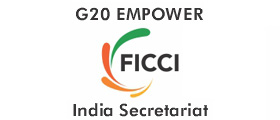Tabitha from Khuringmul village of Chandel district in Manipur from the Taro – also called the Tarao – tribe of Manipur, is a self-taught skilled artisan-entrepreneur, who works wonders with bamboo. She has two junior school-age sons and a husband who works as a mason. The income from bamboo traditional products like baskets and floor-mats is the main source of livelihood for the family. She learnt the craft when she was only around 15 years of age. In the early days, she worked small-scale, making products that she would sell in the local haat.
However, a chance encounter with experts from the National Institute of Design (NID), who were surveying the remote areas of Manipur to learn about the Taro craft, changed her and her tribe’s fortunes and opened them up to the wider world. “The designers helped me envision an array of new designs for all the traditional products such as the Phar, Ruupok, Bukkang, Lukpak, Luktong and Peishep and think of markets beyond the local Haat in Chandel,” Tabitha says.
In 2017, with 35 other women from the village of just 67 homes, Tabitha, registered a small cooperative society. Soon, 10 of the cooperative women reached the Ahmedabad campus of NID for training in design and marketing.
Although the Taro tribe[1] is said to have settled in Manipur since 1075 AD, the Government of India recognised Tarao as an aboriginal tribe of Manipur only in 2003. It is reportedly the smallest tribe in India.[2] Some say that they came from erstwhile Burma and settled in parts of Manipur, mainly in Chandel. Some of them are also found in the Ukhrul region. The impoverished tribe mainly depends on the forest for their livelihood. Their exposure to education and the outside world is also low.
However, since their collaboration with NID began, Taro Bamboo products have travelled to places as far as Ahmedabad, Delhi, Mysuru, North Kerala, Rajasthan, Uttar Pradesh and Madhya Pradesh. The women now earn an average of INR 5,000 to 6,000 a month. Just about five years ago, when the women were still working through only a limited range of designs, this income used to be in the range of INR 1,000 to 2,000 a month.
The Tribal Cooperative Marketing Development Federation of India Limited (TRIFED)[3] has also sponsored the Taro women members of the local cooperative from Khuringmul to participate in various exhibitions across the country.
However, Tabitha is not resting on her laurels – not yet. She has bigger plans for her community.
“Buyers take our products in a semi-finished form, then add some lustre and style to these products and sell them at five times more than the prices they buy the products from us,” she says. “So, for example, a small size bamboo basket that we sell for INR 300 fetches the buyers as much as INR 1,500 in the markets outside Manipur. I want to take our products to a level where we can keep all that income in the village.”
[2] As per reports, Toto, a primitive Indo-Bhutanese tribe hailing from Totopara in Jalpaiguri district of West Bengal, numbering less than 1500, is said to be the smallest tribe in the world. But going by the Population Census 2011, Tarao tribe numbers are smaller than Toto tribe. The population of Tarao is only 1,066, according to the census.
[3] TRIFED was established in August 1987 under the Multi-State Cooperative Societies Act, 1984 by the Government of India as a National level Cooperative body under the administrative control of the then Ministry of Welfare of India, with the basic mandate of bringing about socio-economic development of tribals of the country by institutionalising the trade of Minor Forest Produce (MFP) & Surplus Agricultural Produce (SAP) collected/ cultivated by them.




